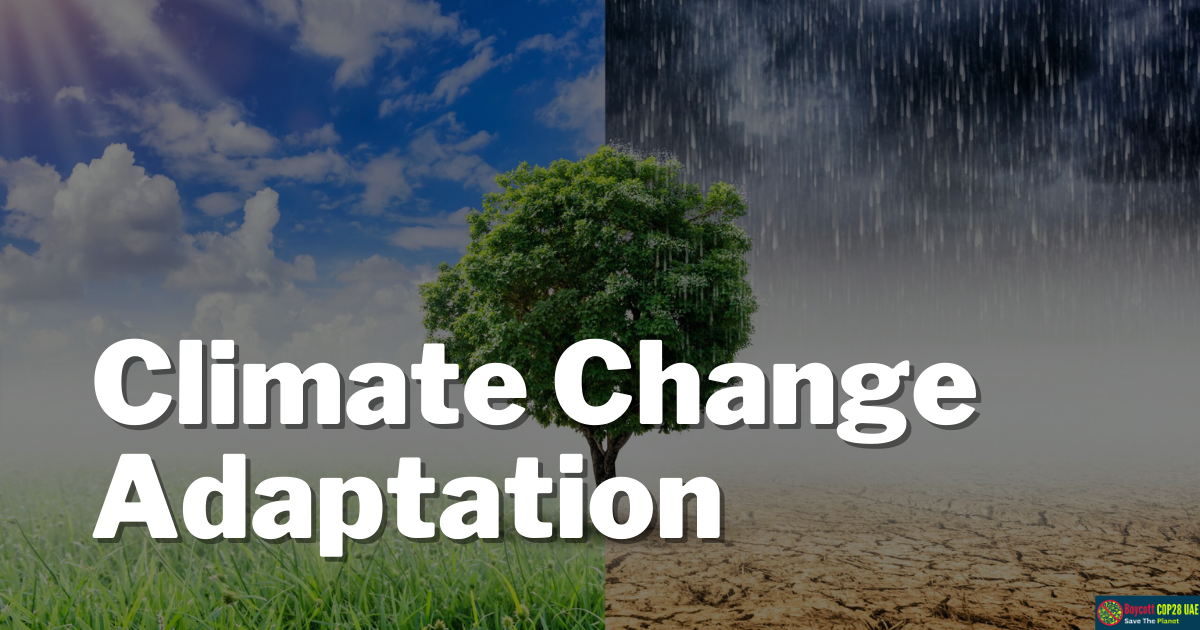Climate change is an urgent worldwide challenge that requires immediate action from all sectors of society. While mitigation efforts are crucial for reducing greenhouse gas emissions, adaptation strategies are equally important for addressing climate change’s current and future impacts.
Climate activists play a vital role in advocating for effective adaptation measures and empowering communities to build resilience. This comprehensive guide explores four expressions of climate change adaptation: practical, critical-structural, personal, and co-generative, providing climate activists with valuable insights and strategies to drive meaningful change.
Climate Change Adaptation
Practical Adaptation: Building Resilient Communities
Practical adaptation refers to tangible measures to lessen vulnerability and increase resilience in the face of climate change impacts.
Climate activists can promote practical adaptation by advocating for developing and implementing climate-resilient infrastructure, such as flood protection systems, early warning systems, and sustainable agriculture practices.
By emphasizing the importance of preparedness and risk reduction, activists can help communities adapt to the changing climate and minimize the impacts on vulnerable populations.
Critical-Structural Adaptation: Addressing Systemic Injustices
Critical-structural adaptation focuses on addressing the underlying structural injustices that exacerbate the impacts of climate change on marginalized communities. Climate activists can raise awareness about the unequal distribution of resources and power, which often leads to disproportionate vulnerabilities.
By advocating for equitable policies, such as inclusive decision-making processes and fair resource allocation, activists can ensure that adaptation efforts prioritize those most affected by climate change. Additionally, supporting initiatives that promote social and economic justice can help create a more resilient society as a whole.
Personal Adaptation: Individual Actions with Collective Impact
Personal adaptation involves individual actions to reduce personal carbon footprints and increase sustainability practices.
Climate activists can encourage individuals to adopt low-carbon lifestyles by promoting energy-efficient practices, sustainable transportation, and responsible consumption. While personal adaptation alone may not solve the climate crisis, it plays a vital role in raising awareness, setting an example, and fostering a culture of sustainability.
By engaging in personal adaptation and inspiring others to do the same, climate activists contribute to a broader societal shift toward climate resilience.
Co-generative Adaptation: Collaboration for Collective Solutions
Co-generative adaptation emphasizes the importance of collaborative and inclusive approaches to adaptation. Climate activists can facilitate partnerships among diverse stakeholders, including governments, civil society organizations, businesses, and local communities.
Activists can harness collective intelligence and generate innovative solutions by fostering dialogue, knowledge sharing, and joint decision-making processes. Co-generative adaptation recognizes that addressing climate change requires collaborative efforts and the inclusion of various perspectives, ultimately leading to more effective and sustainable adaptation strategies.
Conclusion
Climate change adaptation is a multifaceted endeavor that requires comprehensive action from individuals, communities, institutions, and governments. As climate activists, it is essential to understand and promote the different expressions of adaptation: practical, critical-structural, personal, and co-generative. By advocating for practical adaptation measures, addressing systemic injustices, encouraging personal lifestyle changes, and fostering collaborative partnerships, climate activists can drive meaningful change and contribute to a more resilient and sustainable future. Climate change adaptation must remain at the forefront of the global agenda, and by embracing these strategies, activists can play a pivotal role in shaping a climate-resilient world.






